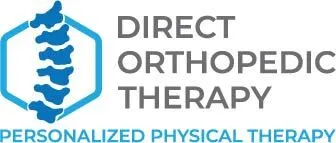Running can put a great deal of strain on your body, so taking good care of yourself is essential to prevent injuries. To maximize recovery, creating an effective recovery routine that includes rest, stretching, nutrition, and sleep is beneficial.
Rest and Recovery
Running athletes understand the value of taking a rest day to recover. Running causes microscopic tears in muscle fibers, triggering an inflammatory response within the body. A good rest day can make all the difference in recovery. That reaction allows the muscle to repair itself stronger to handle greater demands in the future. You need 48-72 hours of recovery between exercise sessions.
However, not all rest days are created equal; some require more than others. For instance, marathoners who typically work out seven days a week may require more rest than regular runners with more relaxed schedules.
Professional athletes typically take at least one full weekly rest day and one to two active recovery days. This gives their bodies the time they need to fully recuperate from running while keeping their training schedules on track and allowing them to enjoy other aspects of life and fitness routines. To ensure the best recovery, consider consulting with a professional at Direct Orthopedic Therapy for personalized physical therapy sessions.
Stretching
Professional athletes often engage in rigorous training and routines that would intimidate most people. Examples include gymnasts, yogis, contortionists, and martial artists.
But they also take time to stretch before and after their runs to increase flexibility, improve range of motion, and relieve sore muscles.
Stretching is an integral part of running recovery, particularly for runners who tend to experience tightness in their hips, hamstrings, and calves. Without stretching properly after a hard run, you could put yourself at risk for back pain and sciatica.
Stretching typically involves reaching and holding a position for 30-60 seconds to lengthen muscles and the surrounding connective tissue (fascia). The most popular type of stretching is static stretching.
Nutrition
No matter your level of experience with running, nutrition is critical for recovering after each run. Runners need plenty of carbohydrates, protein, and healthy fats to fuel their bodies’ recovery processes.
Carbohydrates are essential for post-run recovery as they replenish glycogen stores and give you energy. Additionally, ensure you get enough protein, which plays an important role in muscle growth and repair; additionally, ensure your diet contains whole foods like vegetables, fruits, lean meats, and healthy fats from sources such as nuts.
Within 30 minutes after your run, aim to have a small meal with carbohydrates and protein that includes both. That could include yogurt with fruit and granola, a smoothie, a banana with peanut butter, or a cup of chocolate milk. But you can take your recovery meal to the next level by including micronutrients to aid in rebuilding.
Sleep
Professional athletes understand the importance of maintaining a balance between training, rest, recovery, and nutrition to maximize their performance. When one area is neglected, another could suffer.
A range of products and methods can aid muscle recovery. These include theraguns, CBD muscle rubs, magnesium bath salts, and even ice packs.
Unfortunately, none of these methods can replace a good night’s sleep. Lack of shut-eye can actually decrease an athlete’s capacity for recovery after strenuous activity.
Furthermore, sleep increases blood flow to muscles and regenerates cells. It also triggers growth hormones in the body, aiding muscle repair. If you’re struggling with recovery, consider mobile physical therapy to help you get back on track.
For more information or to schedule an appointment with our team of specialists contact us today.



